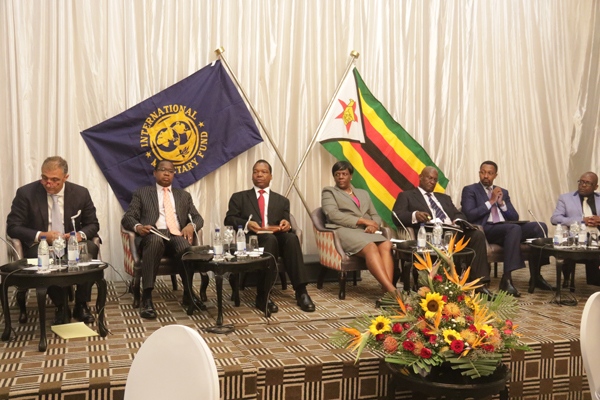
It will be at least three years before Zimbabwe can get loans from international lenders, and the country needs to strengthen its economic reforms to make sure it can repay its debt, the International Monetary Fund said on Thursday.
Reuters
Domenico Fanizza, the head of a visiting IMF mission, said no quick and easy fixes exist for Zimbabwe’s economy. What is needed are costly reforms that would take time to be felt by ordinary citizens, he said.
The southern African nation owes foreign creditors $9 billion and has been struggling for five years to recover from a catastrophic recession, widespread food shortages and hyperinflation.

Fanizza said Zimbabwe was doing well under an IMF monitoring programme meant to instil fiscal and financial discipline, rebuild trust with foreign creditors and allow the country to present plans to clear its arrears. The programme ends in December
“Then the next step, together with government is building this credible, more ambitious reform programme that tries to tackle the underlying problem of the Zimbabwean economy,” Fanizza told a meeting of government officials, industry executives and western diplomats in the capital Harare.
“This will be a three-year programme, and would be the moment in which the capacity of Zimbabwe to finance itself on international financial markets and from this institution could happen again. It will be allowing the country to re-enter the international financial community,” he said.
- Chamisa under fire over US$120K donation
- Mavhunga puts DeMbare into Chibuku quarterfinals
- Pension funds bet on Cabora Bassa oilfields
- Councils defy govt fire tender directive
Keep Reading
The IMF and government have cut Zimbabwe’s growth forecast to 1.5 percent this year from to 3.1 percent in 2014, blaming drought and weak commodity prices.
President Robert Mugabe’s government began defaulting on its debt to the IMF and several lenders in 1999. Gross domestic product shrank by 45 percent during the decade to 2008.
Zimbabwe dumped its worthless currency in 2009 and adopted the U.S. dollar, but the strengthening greenback has left the country vulnerable to cheap imports, especially from South Africa, whose currency, the rand, has weakened.
Local industry has been hardest hit. High interest rates and power shortages have also caused havoc, with some economic analysts warning of a recession in 2015 and next year.
“Going into 2016, the challenge is that we are going to expect normal to below-normal rains. If these trends continue, we will heading for recession in 2016,” Somkhosi Malaba, head of the Bankers Association of Zimbabwe, told the meeting.











